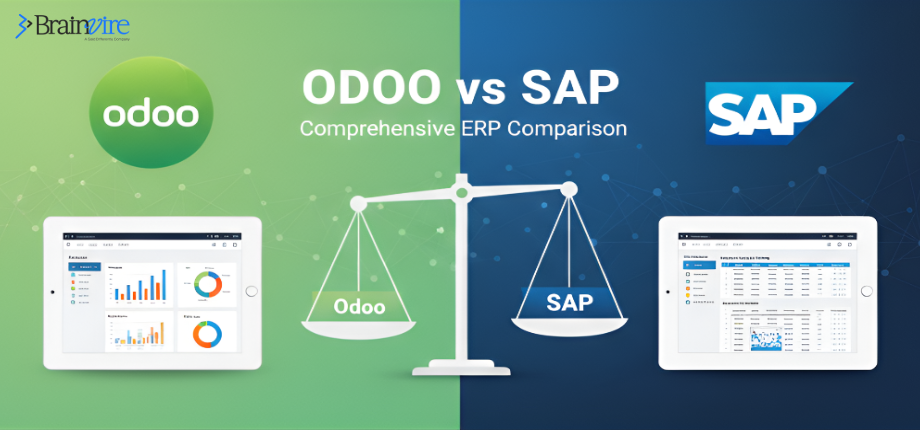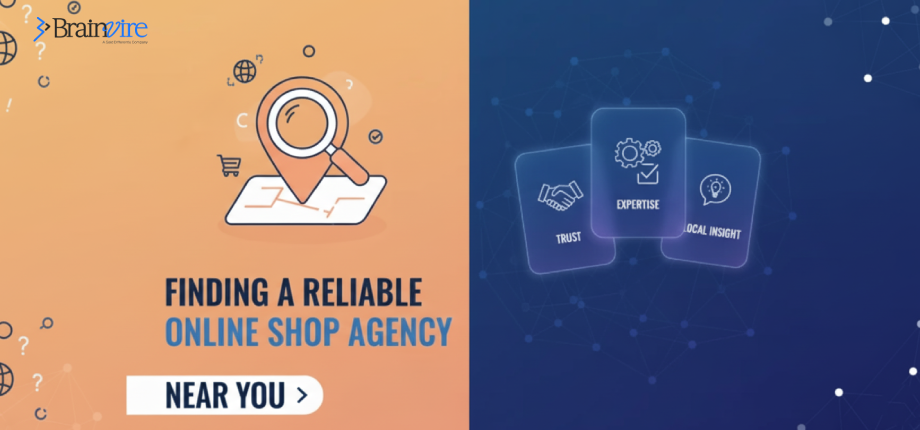Odoo vs SAP Comparison
Choosing the right ERP system is crucial for any business. Odoo and SAP are two popular options. Each offers unique features and benefits. Understanding their differences can help you make an informed decision.
Odoo is known for its flexibility and affordability. It’s an open-source platform with a user-friendly interface. This makes it appealing to small and medium-sized businesses.
SAP, on the other hand, is a well-established ERP provider. It offers robust features suitable for large enterprises. Its comprehensive solutions are designed to support complex business operations.
In this article, we’ll compare Odoo and SAP. We’ll explore their features, pricing, and more. This will help you determine which ERP system best fits your business needs.
What is Odoo? What is SAP?
Odoo is an open-source ERP solution designed for flexibility and ease of use. Its modular approach allows businesses to add necessary functionalities, making it highly customizable. It is popular among small and medium enterprises due to its cost-effectiveness and user-friendly interface.
SAP, in contrast, is a major player in the ERP market, known for its comprehensive suite of enterprise solutions. It offers robust features aimed at addressing complex business needs. SAP is often chosen by large corporations for its scalability and industry-specific solutions.
Key offerings of Odoo and SAP include:
- Odoo: Flexibility, affordability, and open-source model
- SAP: Robust feature set, industry-specific solutions, and scalability
These defining qualities emphasize each platform’s strengths, helping businesses choose the suitable ERP system.
Core Features: Odoo vs SAP
Both Odoo and SAP provide a wide range of features, but they cater to different business sizes and needs. Odoo’s open-source nature allows extensive customization, giving it a flexible edge. Users appreciate its user-friendly interface, which simplifies daily operations.
SAP excels with its robust, feature-packed ERP offerings tailored to complex business processes. Its solutions often include advanced analytics and reporting capabilities. This makes SAP a preferred choice for data-driven decision-making. Moreover, it supports a wide range of industries with its specific solutions.
A closer look at core features reveals:
- Odoo: Modular design, easy integration, open-source, cost-effective
- SAP: Advanced analytics, industry-specific solutions, comprehensive reporting
While Odoo offers a modular approach with frequent updates, SAP ensures stability and performance in handling large-scale operations. Each system’s unique set of features highlights why businesses might lean toward one over the other, depending on specific requirements and growth plans.
Pricing and Cost Comparison
Choosing between Odoo and SAP often comes down to budget. Odoo is generally more affordable, making it appealing for small businesses and startups. Its pricing model is flexible, allowing companies to pay only for the modules they need.
In contrast, SAP tends to have higher licensing costs, especially for large implementations. This investment can be justified by its advanced functionality and comprehensive support network. For small to medium-sized enterprises, SAP Business One offers a more cost-effective option compared to the full SAP suite.
Here’s a brief rundown of costs:
- Odoo: Cost-effective, pay-per-module, community version available
- SAP: Higher upfront cost, extensive support, industry-proven solutions
Overall, the choice depends on your budget and the scale of required solutions.
Implementation and Ease of Use
Implementing an ERP system can be a challenging process for any business. Odoo is known for its relatively quick and straightforward implementation. This is due to its modular nature and user-friendly design, which minimizes disruptions during setup.
In contrast, SAP often requires more extensive time and resources for a successful deployment. While it offers robust features, its complexity can extend the implementation timeline. Companies might need to plan for a longer integration period with SAP.
Odoo’s intuitive interface eases the learning curve for new users. Meanwhile, SAP may demand more training to fully utilize its sophisticated features. The choice here impacts both setup time and user adoption.
Customization and Flexibility
Odoo offers unmatched customization options due to its open-source nature. Businesses can tailor the system extensively to suit unique processes. This flexibility is ideal for companies with specific operational needs.
On the other hand, SAP provides customization but often requires more complexity. Customizing SAP might demand additional expertise and resources. Despite this, it is still capable of meeting diverse business requirements.
For businesses seeking adaptability, Odoo stands out. Its modular design allows easy integration of new features. Key aspects include:
- Extensive module library
- Open-source platform
- Rapid adaptation to business changes
Choosing between the two depends on your need for quick adaptability and customization depth.
Scalability and Industry Focus
SAP excels in scalability, supporting businesses from small to large enterprises. It is especially favored by global companies with complex, expanding operations. Its solutions can manage extensive data and sophisticated workflows.
Odoo, though scalable, shines in smaller to medium-sized environments. It offers growth opportunities with its modular approach and flexibility. This makes Odoo a practical choice for startups aiming to expand gradually.
Both ERP systems cater to specific industries with tailored solutions. Notable industry focuses include:
- SAP: Manufacturing, Retail, Healthcare
- Odoo: E-commerce, Hospitality, SMEs
Choosing between SAP and Odoo depends on your company’s scale and industry requirements. Assess your current size and future plans carefully.
Integration and Deployment Options
ERP systems thrive on integration, and both SAP and Odoo offer robust options. SAP’s strength lies in its seamless integration within its own ecosystem. It’s particularly effective when combined with other SAP products.
Odoo, however, provides a versatile integration platform. Its open-source nature allows smooth connections with various third-party tools. Deployment options for both include:
- SAP: On-premise, Cloud
- Odoo: Cloud-based, On-premise, Hybrid
Choosing an ERP system should consider your existing IT infrastructure. Ensure your choice supports smooth integration and aligns with your deployment preferences.
Support, Community, and Updates
SAP is renowned for its extensive support network. It provides comprehensive training resources and global assistance. This ensures users have access to help when needed.
Odoo, on the other hand, benefits from a vibrant open-source community. Its development team and community members frequently release updates and improvements. Resources available include:
- Community forums
- Developer documentation
- Regular software updates
Both systems offer support, but Odoo’s community-driven nature stands out. It provides rapid innovations and extensive peer advice.
Odoo vs SAP vs Oracle: Broader ERP Landscape
In the crowded ERP market, Oracle also emerges as a major player. It focuses on large enterprises and offers robust features. Oracle’s ERP solutions compete with SAP’s, especially for multinational corporations.
Odoo stands out with its cost-effectiveness and modular approach. It appeals mainly to small to medium enterprises. In contrast, SAP and Oracle cater to complex, large-scale operations.
Which ERP is Right for Your Business?
Choosing the right ERP depends on your business needs and scale. Odoo suits small to medium businesses with limited budgets. Its open-source nature provides flexibility and cost savings.
For larger businesses with complex processes, SAP might be more suitable. It offers comprehensive features for managing global operations efficiently. SAP’s reputation for reliability and robust capabilities is unmatched.
Considerations for selecting an ERP should include:
- Budget constraints and cost-effectiveness
- Business size and future growth plans
- Need for customization and specific features
- Importance of community and support availability
Evaluate these factors to decide on an ERP solution that aligns with your goals.
FAQs
Q1: What are Odoo and SAP?
A: Odoo is an open-source ERP solution known for its flexibility, ease of use, and modular approach, popular among small and medium enterprises. SAP is a major, well-established ERP provider offering a comprehensive suite of robust, scalable enterprise solutions often chosen by large corporations.
Q2: What are the key differences between Odoo and SAP?
A: Odoo is generally more known for flexibility, affordability, and its open-source model. SAP is known for its robust feature set, industry-specific solutions, and scalability, catering to complex, large-scale operations.
Q3: Which ERP system is more suitable for a small to medium-sized business (SME)?
A: Odoo is typically more suitable for SMEs due to its cost-effectiveness, flexible pay-per-module pricing, user-friendly interface, and quick implementation time.
Q4: Which ERP system is better for a large enterprise with complex operations?
A: SAP is generally preferred by large enterprises and global companies because of its scalability, robust features, advanced analytics, and comprehensive support for complex business processes.




